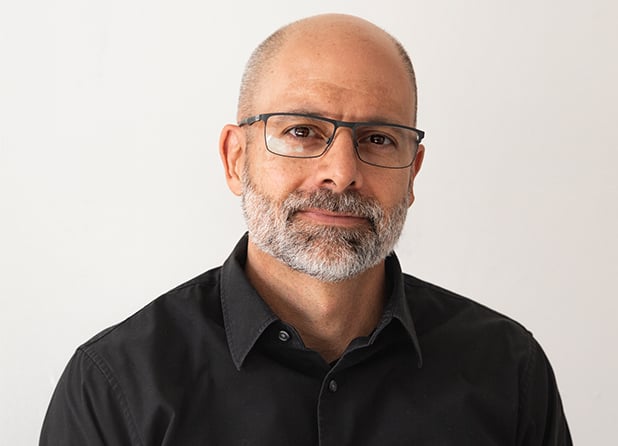
Two years of disruption to the fabric of society has resulted in a collective shift in people’s relationships with work, consumerism, technology and the planet, pushing companies to design new ways of doing business, according to the annual Fjord Trends report from Accenture. The Middle East is no different – newly identified behaviours will challenge businesses to rethink their approach to design, innovation and growth as a result of the shifts in employee expectations and mindset, scarcity caused by disrupted supply chains, and new environments such as the metaverse.
Each year, Accenture Interactive canvases the insights and opinions of more than 2,000 designers and creatives from more than 40 locations across the globe. From the minds of this international creative community, we produce the annual Fjord Trends. In its 15th year, Accenture Interactive’s latest Fjord Trends report provides practical guidance as companies look to deliver value and relevance to their customers, employees and society.
The top five trends that emerged spanned the metaverse and the new workplace, through to “nature positive” sustainability and care in all senses and contexts.
How we view work, the technology we use, what we choose to buy and from whom have all undergone a massive shift. Lifestyle, health and the environment have taken on far greater significance.
For all businesses, understanding the changing relationships with the workplace, consumerism, technology and the planet, as well as converting those insights into powerful business strategies, is critical to maintaining relevance and driving growth in 2022.
Already, most business leaders will have seen and adapted to the changing expectations of employees. The report identifies this as the rise of a ‘me over we’ mentality as people question what truly matters to them, and this mindset will continue with profound implications for how businesses attract and retain talent. It finds that there is already a humanization of the workforce in many cases, with employees’ professional and private lives blending more. Alongside, businesses acknowledge the need for different working patterns, the changing role of work premises, and what employee benefits resonate with.
In the region, a significant number of people defined new priorities and goals during the pandemic, which resulted in a wave of career shifts and a rise in entrepreneurship. To address these changes, the UAE government introduced freelance visas to support side-hustle jobs to respond to the rise of creator and gig economies.
The second trend is ‘the end to abundance thinking’. We are all very used to the idea of getting what we want when we want it. Convenience and speed of access or delivery are second nature. But over the past year, many of us have witnessed and felt what it’s like to face empty shelves, rising energy bills, and shortages in everyday services. At the same time, we are acutely aware that our drive for more costs the planet dearly.
While supply chain shortages might be temporary, the impact will persist with the authors predicting new approaches to sustainability, particularly relating to the environment, as businesses come under mounting pressure to tackle climate change.
Businesses will have to rethink how they use resources and potentially overhaul their working methods. ‘Less,’ however, is not ‘loss,’ and innovation doesn’t always have to mean ‘new.’ Today, young designers in the Middle East are pioneering a conscious, long-lasting and non-excessive mindset in fashion.
Another emerging theme for business is the metaverse: the new convergence of physical and digital worlds, providing somewhere else to exist and relate when we’re apart—at least while the physical world gets back on its feet. Perhaps only time will tell, but it promises endless riches and could lead to cultural evolution that goes beyond the gaming community.
For most businesses and organizations, it will take a lot of trial and error to work out how or if their customers fit in this new world, but the potential is undoubtedly there. For example, in Saudi Arabia, NEOM is the first “meta-city” building a replica on metaverse for everyone to experience the city, no matter where they are. Moreover, it also serves as a digital twin for the city for better construction and operations.
The fourth trend identified – ‘this much is true’ – emerges from one of the many great advantages of the internet: if you have a question, you can always find an answer online. The fact that it’s so easy and immediate means we’re asking more questions and demanding more accurate answers. The range of customer questions and the number of channels for asking them is constantly growing for brands.
How to answer them is a major business challenge. Therefore, it is a critical driver for trust, leading the report to predict a further growth in AI – particularly sophisticated conversational AI – that brings product and brand information together for the consumer.
The final key trend is ‘handle with care’. It embraces self-care, care for others, the service of care, and the channels to deliver care (both digital and physical). Regardless of any connection with health, organizations must now define how they embed care into their practices and services —for employees, customers and wider society.
Shezlong, an online platform in Egypt that connects people with mental health, has quickly grown to 120,000 customers and 350 practitioners. The platform makes mental therapy accessible to and affordable for a new audience that couldn’t, didn’t prefer visiting a practitioner in person due to living in a rural area or social stigma.
The role of business is to respond to changes in human behaviour. More than ever, that role also includes tackling the challenges of society. As we begin the third year of living with Covid 19, there continue to be challenging times ahead, but grasping the emerging trends out of the crisis creates the opportunity to design new systems, create new businesses, and support the world around us.









